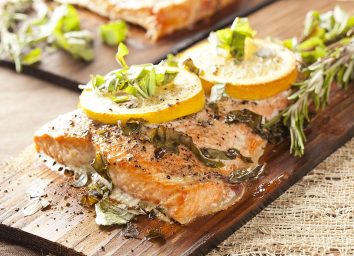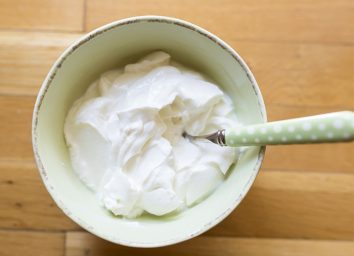Why Good Gut Health Is So Important To Overall Health

No, we’re not talking about those bugs. We’re talking about the trillions of helpful bacteria that live in your gut and play a fundamental role in maintaining a healthy and happy body. (And yes, we said trillions—many estimates equate that number with making up three pounds of your total body weight!) This community, referred to by scientists as your “gut microbiota” or “gut microbiome,” can be composed of around 500 species which each supply their own benefits: Some of them break down your food and extract nutrients; others hunt for food pathogens; and others help protect you from colds and the flu. In fact, they play such a critical role in our health that many experts have started to refer to the microbiome as its own organ. All of this sounds like a good thing—so what’s the problem?
The problem is this: When we eat too much junk food (especially sugar) and take too many drugs (like antibiotics or antidepressants), we can knock our digestive systems out of whack and disrupt the composition of our gut. When your good gut bugs are depleted, bad bacteria can take over, causing health issues that range from skin conditions to depression. What’s more, researchers are finding that obese people have different gut bugs than healthy-weight people, suggesting that cultivating a proper gut garden may help solve weight troubles.
So, if you’re struggling with weight-loss, anxiety, stress, skin issues, fatigue, or chronic sickness, you might want to start looking at your gut. The good news is that you can empower your gut microbiota and help it fight back against the invaders by feeding your beneficial bacteria the foods they—and you—need to stay healthy. Below you’ll find out the cutting edge science behind why nurturing a healthy gut is essential to maintaining a healthy life. And no worries if your gut bugs seem to have taken a vacation; we’ve also compiled the top tips for how you can start healing your belly biome. And then next up is tackling these 40 Habits That Make You Sick and Fat!
First: Benefits of a Healthy Gut
You’ll Tip The Scale In Your Favor

Our weight is dramatically affected by these little buggers. In fact, countless studies have shown us that obese people have higher levels of bad bacteria from the phylum Firmicutes while lean people have higher levels of bacteria from the phylum Bacteroidetes. So, are probiotics helpful in fixing this? Well, a study in the British Journal of Nutrition thinks so. Researchers found that when obese women were given a daily probiotic supplement on top of a calorie-restricted diet to lose weight, their average weight loss was significantly higher than women who followed the same restricted diet but were given a placebo.
You’ll Decrease Inflammation

When you constantly eat inflammatory foods (fried foods, refined flours, sugars, etc.), you can force your body into a state of chronic inflammation. Which, in turn, causes weight gain, joint pain, fatigue, and increases your risk of type 2 diabetes and obesity. One of the ways it does that is by starving your gut microbiome. (Bacteria need food, too!) Let us explain: These inflammatory foods are typically lacking in their natural fibers—a critical nutrient that not only keeps you fuller longer but also feeds your gut bugs. Your good bacteria nosh on and ferment these fibers into a fatty acid—known as butyrate—that encourages more efficient fat oxidation. Higher levels of butyrate reduce inflammation in your body and also acts as a defense against bad, pathogenic bacteria, according to a review in Advances in Nutrition. Beat the inflammation with these 20 Healing Anti-Inflammatory Foods.
You Can Prevent Colds

Does it seem like you get a cold every other week? If so, your microbiota might be to blame. Your gut is home to 70 to 80 percent of your body’s immune cells, so it’s no wonder so many autoimmune diseases have been linked to unidentified gastrointestinal problems. Several studies have found that the regular intake of a probiotic may prevent the occurrence or reduce the duration of respiratory and gastrointestinal disease, and a meta-analysis of 10 studies published in the Korean Journal of Family Medicine found evidence that the administration of probiotics can even prevent catching the common cold.
You’ll Alleviate Skin Conditions

Eczema, psoriasis, acne, and many other skin disorders are not merely “skin deep.” Because our microbiome helps regulate our immune system, its composition and health play an important role in combating inflammatory diseases like skin conditions. Researchers at the National Cancer Institute found that the immune system (of which the majority is located in your gut) helps select which microbes live on the surface of the skin: participants with a weak immune system harbored a different collection of microbes that were found on healthy individuals. Therapeutic research in the field is in the preliminary stages, but experts believe administering probiotics to those suffering from skin conditions can reduce patients’ levels of inflammatory proteins and alleviate symptoms. And just like skin, the health of your hair is moderated by multiple unseen factors—find out how to look your best with these 30 Best and Worst Foods For Healthy Hair.
You’ll Extract More Nutrients From Your Food

There is increasing evidence that the composition of our microbial community influences the nutritional value of food. How is that? Isn’t food the same no matter who eats it? Not exactly. Our gut bugs help digest and break down the proteins, carbs, and fatty acids in our foods so we can extract its nutrients, including essential vitamins such as B vitamins 12 and 9 (folate) and vitamin K. Folate is important for keeping your DNA control mechanisms functioning properly—i.e. keeping your fat genes switched “OFF!” In fact, research has shown the Bifidum species of bacteria—which is typically lower in obese individuals—is particularly active in producing folate. So, less Bifidum means less control over your genes and more belly fat.
Your Vaginal Health May Improve

Probiotics are particularly important for women’s vaginal health! “There’s a naturally acidic PH in [your vagina],” says Bonnie Taub-Dix, RDN. “And some of the most helpful foods are those that also have good bacteria.” Maintaining a healthy gut will help balance out your vagina’s PH levels to keep things fresh down there. Another plus to probiotics? They help ward off bad bacteria as well, keeping infections down there at bay. Check out what to nosh on to boost your vagina health.
You Might Be Happier

You may have heard the best way to someone’s heart is through their stomach, but there may be more truth in that saying if you switched heart to brain. Mounting scientific evidence is showing that the composition of our gut microbiota plays a critical role in influencing cognitive behaviors and emotions such as anxiety, depression, stress, autism, learning, and memory through our “gut-brain axis,” according to a review in the Journal of Agricultural and Food Chemistry. And an astounding 95 percent of your happy hormone serotonin is made and stored in your gut. Who knew?
In fact, a study in the journal PNAS found that when mice were infected with an anxiety-inducing parasite and then given a strain of probiotics, reduced levels of stress hormones and less anxiety- and depression-related behavior resulted. And researchers at the Office of Naval Research discovered they could improve moods of anxious mice by feeding them healthy microbes from calm mice. Both studies have opened doors to the possibilities of using probiotics to treat neurological disorders such as PTSD, anxiety, and depression. (Psst! Probiotics aren’t the only thing that fights stress. These teas do as well!)
…And Sane

Those intuitive “gut feelings” could actually be your gut microbiota trying to tell your brain something. We just read how gut microbes can make us happy, but other research is showing these little gut bugs might be affecting your brain in a more direct, physical way. According to researchers at University College Cork, gut bacteria play a role in regulating genes that are crucial for proper nerve signal functioning. Microbiota-deficiency results in the breakdown of the product of these genes, myelin, which is also a symptom of the disease multiple sclerosis—a condition where the immune system attacks the brain and spinal cord, leading to severe tremors, temporary vision loss, pain, fatigue, and impaired coordination. Beyond the fact probiotics might act as a therapy for MS, this study also shows us how a healthy gut is necessary for proper brain signaling. You know what else is good for a healthy brain? The Best Foods for Your Brain!
You’ll Prevent the Growth of Pathogens

Keeping a dense and diverse microbial community will also protect your gut from being colonized by pathogens as well as minimizing the overgrowth of disease-causing organisms, according to a study in Nature Immunology. These harmful pathogens—which you can ingest from mishandled food, untreated water, or improper hygiene—can cause mild diseases like food poisoning to more severe issues like tuberculosis.
You’ll Control Your Appetite

One way in which your microbiome affects your weight and metabolism may be connected to your gut bugs’ ability to regulate appetite. According to researchers at New York University, a stomach bacterium called Helicobacter pylori can actually change the levels of the hunger-stimulating hormone, ghrelin, in your body. With the rise of antibiotics and a diet based on refined foods, the levels of H. pylori have decreased in our belly biomes. And that means less of its inhibiting effect on our appetites—perhaps reason for why many of us are always hungry.
You Can Be Protected From Heart Disease

Researchers found that when patients with hypertriglyceridemia—a coronary-artery-disease precursor characterized by elevated triglyceride levels possibly caused by obesity and sedentary habits—were given a daily probiotic supplement for 12 weeks, their triglyceride levels improved along with an additional decrease in risk factors for heart disease, according to a study in the journal Atherosclerosis.
…And a Host of Health Issues

Think of your gut like a college admissions board: it likes diversity. There are hundreds of known bacterial species, and a happy gut should have a lot of them. Research is showing that the diversity (both the number of different species and the evenness of those species) of your microbiome is an important part of your health. In fact, a study in the journal Nature found that individuals with a low bacterial diversity were characterized by more overall adiposity, insulin resistance, abnormally elevated cholesterol and lipid levels in the blood and a more pronounced inflammatory phenotype. Yikes. How do you increase your gut’s diversity? Feed it with a plant-heavy diet, play outside (there really is some merit to “rubbing some dirt in it!”), and stop killing off species with microbe-murdering villains like antibiotic-laden meats, processed foods, and sugar.
Want to find out more ways to cultivate a healthy gut garden? Keep reading!How To Improve Your Gut Health
Restore Your Healthy Biome with Probiotics
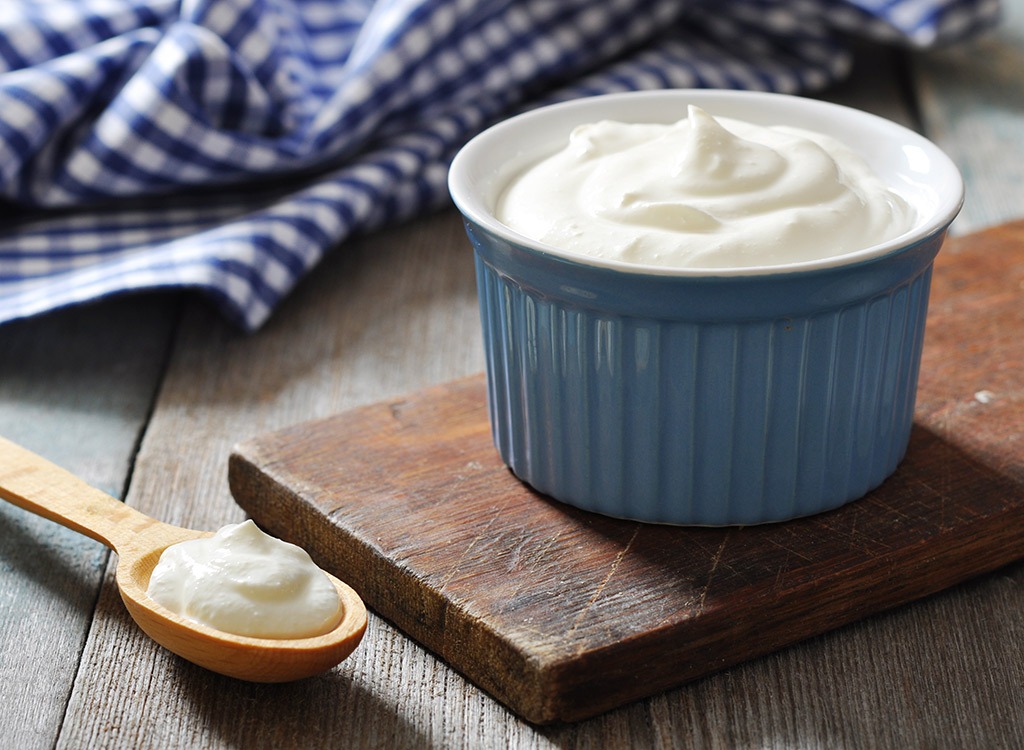
One of the first steps to healing your gut health is by replenishing levels of beneficial bacteria. You can do this by taking a probiotic supplement, or by incorporating probiotic-rich, fermented foods, like yogurt, kimchi, and (gasp!) even sourdough bread! Contrary to what many think, sourdough is not a flavor, it’s actually the process where wild yeast and friendly bacteria break down the gluten and sugar in the wheat flour, turning it into good-for-you proteins, vitamins, and minerals. The starches and grains from the bread are predigested by the bacteria and yeast, which makes it easier for you to digest and a much healthier option than any over-processed white bread.
Feed Your Gut Bacteria With Prebiotics
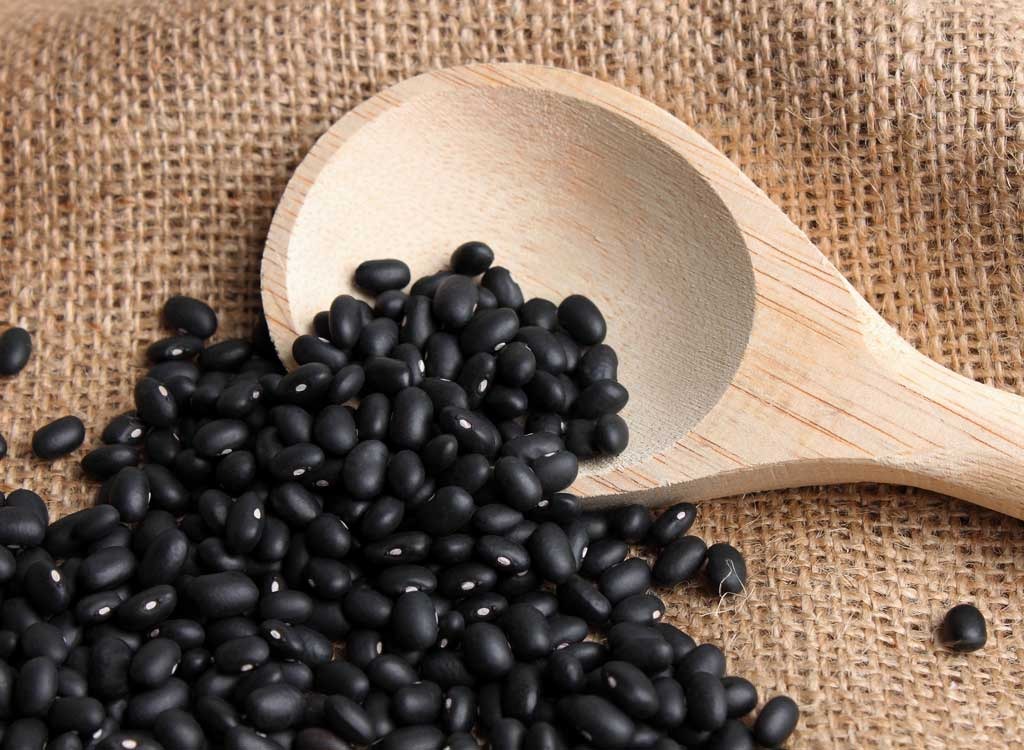
Just like us, the bacteria in our gut also need food. And the best foods for the job are fiber-rich foods like leafy greens, resistant starches—including potatoes, legumes, and raw oats—grains, bananas, and even dark chocolate contain varying fibers that fuel our gut bugs. In fact, a study in the Journal of Functional Foods found that eating resistant starch actually strengthens your gut biome. It’s because healthy bacteria literally get a workout digesting the stuff, becoming more dominant and leading to a cleaner, better-functioning gut.
Eat More Plants, Less Meat
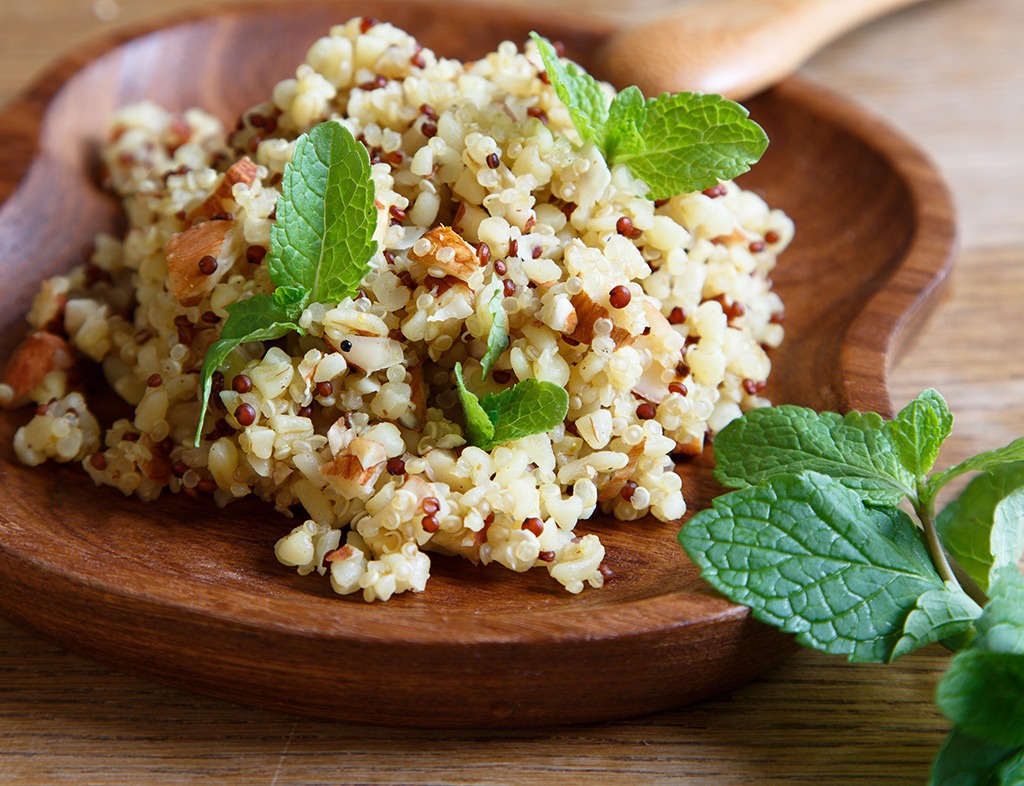
Fiber-rich plant foods like fruits, vegetables, and whole grains contain ample amounts of fiber, a nutrient crucial to good gut health as it feeds our beneficial bacteria, and also helps turn off genes linked to insulin resistance and inflammation. But while most whole grains and fiber-rich vegetables help this process, quinoa deserves a special place in your daily diet because it’s a complete protein—one of the few plants that have a similar amino acid profile as meat. That’s important because a Harvard study recently found that a diet based primarily on animal protein—especially one that involves a lot of food packaging and burger wrappers—can quickly alter the delicate balance of microbes in your belly. Giving up eating animals can be tricky, but not when you follow our Ultimate Guide for Going Meatless!
Fill Up with Polyphenols
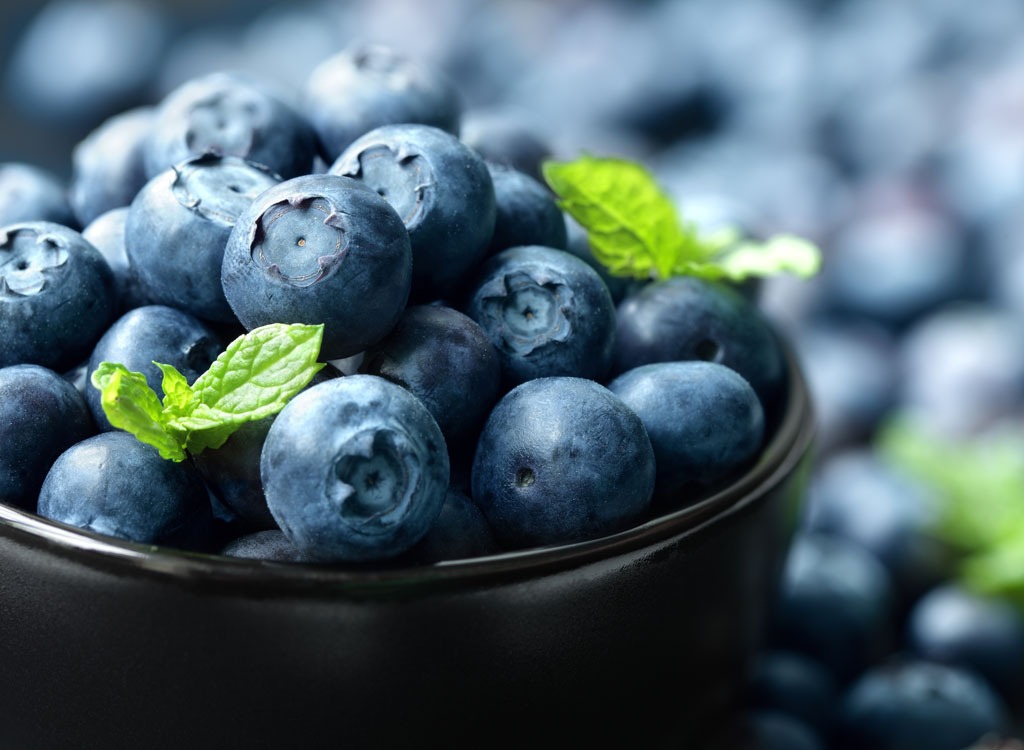
You’ve probably heard that free-radical-fighting antioxidants known as polyphenols are essential in reducing inflammatory, disease-causing oxidative stress, but a study published in the Journal of Clinical Biochemical Nutrition found an additional benefit might be due to their contribution to gut health. In rats fed a high-fat diet, only rats who also consumed an anthocyanin polyphenol extract (similar to what you’d find in blueberries) were able to decrease the damaging effect on the rats’ gut microbiota. Looking at the results together, the researchers speculated polyphenols may play a significant role in the prevention of degenerative diseases (as well as aiding in weight loss) because they improve your microbiome environment. What are you waiting for, grab these polyphenols, stat!
Break a Sweat

Not only does exercise help you lose weight by burning off calories, but studies are showing it may also help you torch belly fat by altering the kinds of organisms that live in our guts. A study published in the journal Gut examined the differences in the gut composition of athletic rugby players and a group of sedentary, overweight or obese men. The rugby players had considerably more diversity in their gut microbiomes than the men in the sedentary group, as well as a larger number of Akkermansiaceae, a bacterium that has been linked with a decreased risk for obesity and systemic inflammation. Staying active will also promote healthier digestion, helping your body process, break down, and eliminate food more frequently—which can also aid weight loss. If you don’t have time for the expert-recommended 30 minutes a day of moderate intensity exercise, try the alternative method—it cuts exercise time in half and you’ll reap the same benefits!
Eat Antimicrobials

A major cause of an unhealthy gut is a high-carb diet. That’s because carbs are made up of sugar molecules, the main source of fuel for a particular yeast fungus, candida. Without beneficial bacteria to keep candida at bay, this fungus can overtake your gut, breaking down your intestinal walls and releasing toxic byproducts into your bloodstream via a condition called leaky gut. Candida imbalance especially can decrease stomach acid, which causes inflammation and poor digestion. Because coconut oil contains a potent anti-viral, caprylic acid, it can help improve bacteria and gut health by destroying bad bacteria and candida. That’s not the only thing coconut oil can do. Find out more in our report, 20 Benefits of Coconut Oil.
De-Stress & Get Happy With Tryptophan-Rich Foods
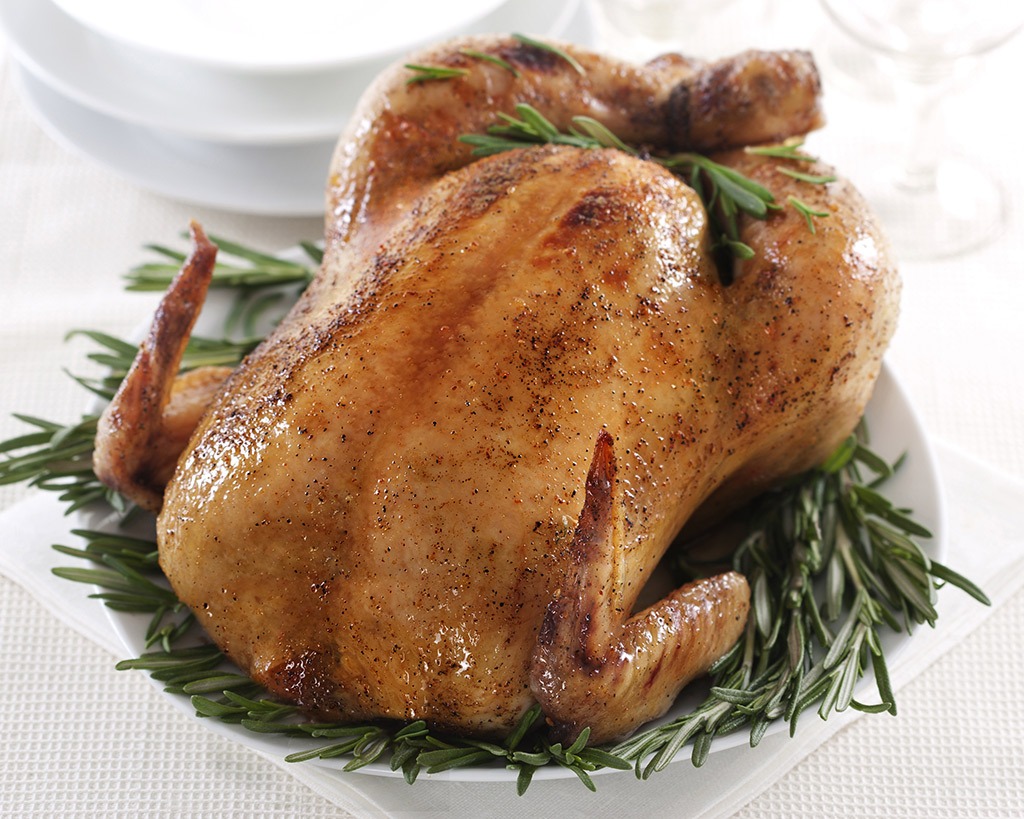
Many times, a poor diet is the result of a vicious cycle. You feel depressed, you eat more indulgent foods to reduce negative feelings, you gain weight, and then your mood plummets again. And when you eat these high-energy foods you may also be killing off the gut bugs that keep you happy. In fact, 95 percent of the happy hormone serotonin is produced in our gut, and depression, stress, sleep issues, and a craving for high-energy, sweet foods might be telling you that you’re deficient in serotonin and worsening your gut health. Because tryptophan is a precursor for building serotonin, eating foods rich in this amino acid—poultry, seeds, chickpeas, milk, bananas, and many of these Best Foods for Sleep—can help improve your mood so you stop delving into the chips bag, stop starving your belly bugs from proper fuel, and stop gaining unwanted weight.
Get Some Shuteye

Drinking your daily four or five cups of coffee may help your sleep-deprived self-function, but it’s not going to heal your gut. According to a study in the journal PLoS One, people who often shift the times they go to bed—essentially living in a state of chronic jet lag—can shift their gut microbiota to an inflammatory state, which is a precursor for obesity, metabolic syndrome, and inflammatory bowel disease. And a review of multiple studies published in the University of Toronto Medical Journal found evidence that artificial lights, computer screens, irregular sleep schedules, and shift work all contribute to a perturbed diet and circadian rhythm, and, in turn, a sick gut community. Get better sleep with these 7 Habits of Highly-Rested People.
Bring in Backup
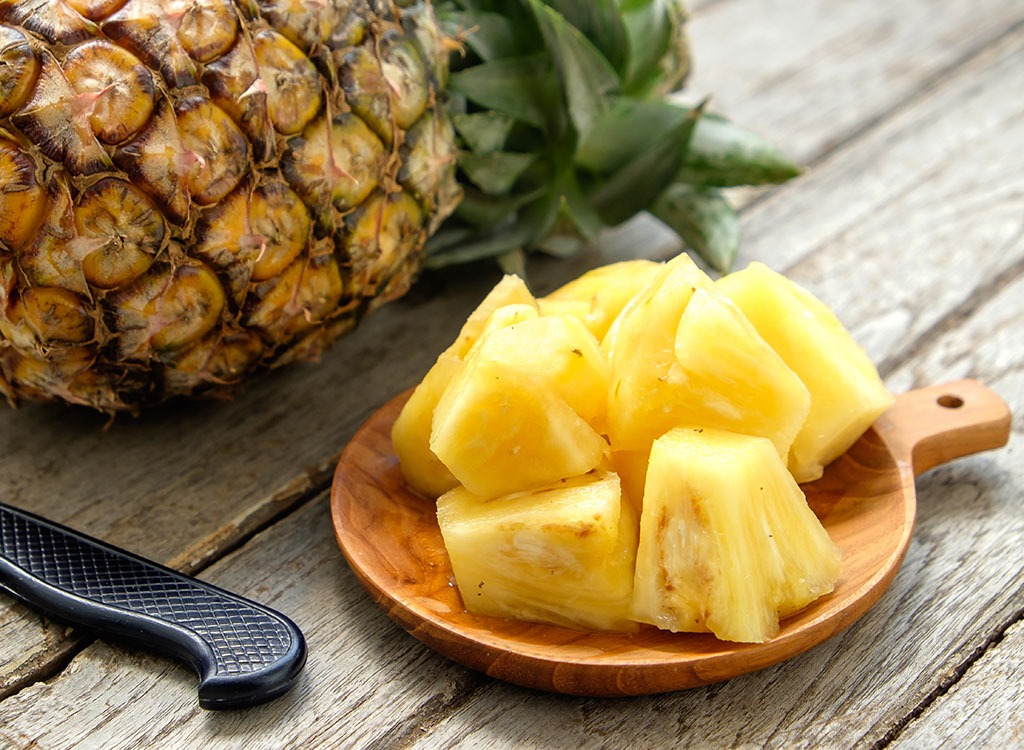
A healthy gut biome is crucial for proper digestion. As we read earlier, our gut bugs help us break down food and even synthesize essential B and K vitamins. When your gut is not functioning at its best, there are lower levels of these helpful bacteria, which could result in nutrient deficiencies. While you’re waiting for your biome to heal, you can help your body digest food by eating certain foods that are rich in digestive enzymes—active proteins that break food down into fuel—such as honey, pineapple, mango, and sprouted grains. (Stay away from soy, though, it’s packed with digestive-enzyme inhibitors.) You can also help digestion move along with these tried-and-true Foods to Tame a Troubled Tummy. (And yes, one of them is ginger!)
Rebuild Your Belly

Besides healing what’s inside your gut, you also have to target the gut itself. Years of destructive eating can break down the intestinal walls, causing a condition known as “leaky gut,” in which inflammatory markers circulate in your body, causing the buildup of belly fat. Nutritionist Cassie Bjork, RD, LD, recommends eating foods rich in nutrients that rebuild the gut wall, like L-glutamine (you can find it in spinach) as well as anti-inflammatory omega-3s from fatty fish. Bone broth, in particular, is a great way to heal your gut. When animal bones are boiled to make the broth, their collagen is broken down into gelatin and dissolved into the water. “When we ingest it, it acts as an intestinal Band-Aid, protecting and healing the lining of the digestive tract which aids digestion and helps us absorb extra nutrients from the foods we eat,” explains nutritionist Lauren Slayton, MS, RD.
Commit To a Healthy Diet

Our gut microbiota is fairly delicate, and it will take time to heal. The best way to heal your gut is sticking to a healthy diet—and that includes the weekends. Researchers at Australia’s University of New South Wales found that when rats were on a yo-yo diet (as in, they ate healthy during the week and ate junk throughout a three-day weekend), their microbiota was nearly indistinguishable from rats fed a junk food diet 7-days-a-week. Specifically, consuming junk food reduced the beneficial microbial species that can metabolize omega-3s and flavonoids (antioxidants which assist in weight loss, as well as provide protection from neurodegenerative diseases). So basically, binging on junk food—even if it’s just three days a week—will not only cause you to gain weight, but it can also shift your gut microbiota towards the same pattern that has been associated with obesity.
Eliminate Destructive Foods
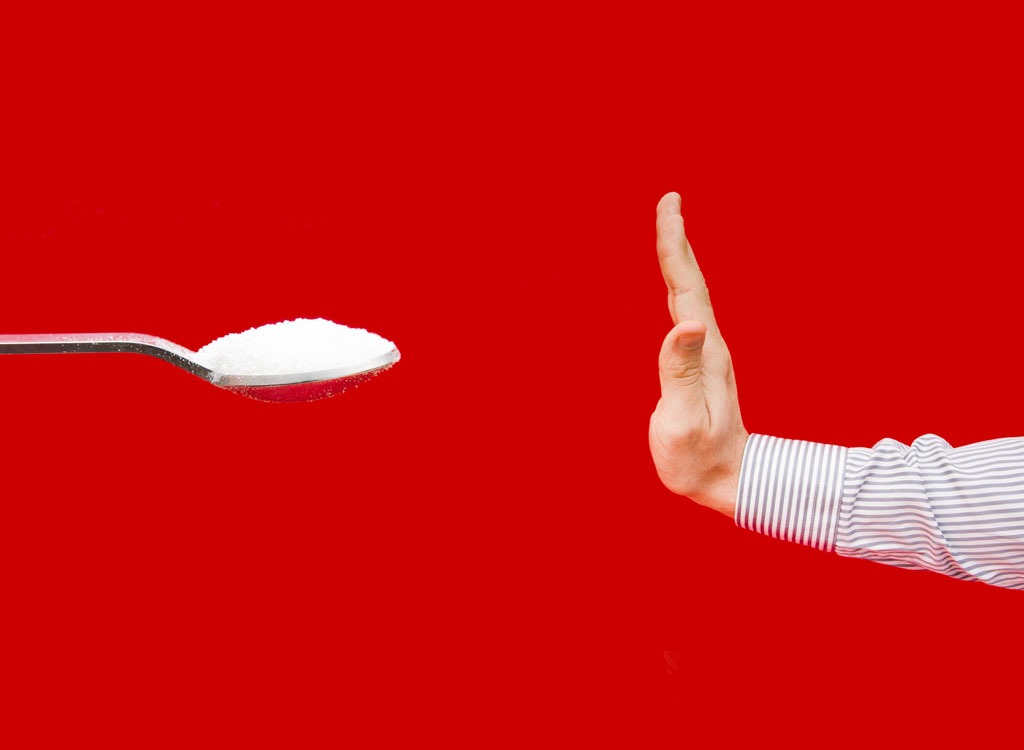
It’s important to not only eat foods that help improve your belly biome but to stop eating foods that destroy it. That includes reducing intake of:
(1) Junky, inflammatory foods like fried foods, refined flours, hormone- and antibiotic-laden animal products, synthetic sweeteners, artificial food additives, and gastric irritants like alcohol and caffeine.
(2) Sugar! All of these processed foods are typically high in sugar, which is fuel for pathogenic bacteria, fungus, and yeast which can conquer and kill your beneficial bacteria. That doesn’t go for whole foods like fruits, which have naturally-occuring sugars.
(3) Gluten from highly-processed breads. Recent studies have found that gluten can negatively impact gut bacteria, even in people who are not gluten-sensitive.
(4) Meats cooked at high temperatures. When you cook meat at high temperatures, chemicals called heterocyclic amines (HCAs) are produced. According to a study in Nutrition Journal, increased intake of HCAs causes changes to our gut microbiota that increases the risk of colorectal cancer.
